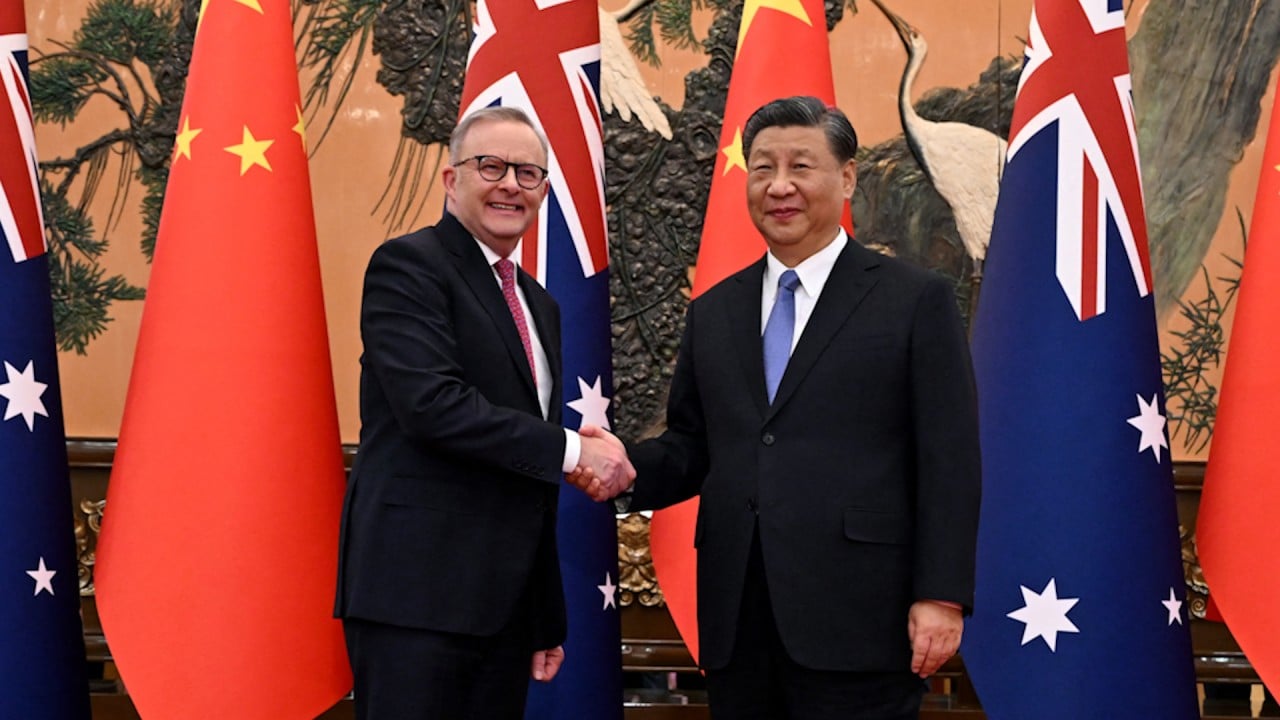Australia, Indonesia make ‘remarkable’ progress towards binding defence pact amid calls for ‘collective responsibility’
[ad_1]
Earlier this year, Canberra and Jakarta had agreed to elevate their existing “Defence Cooperation Arrangement” to one that was “binding under international law”.
There had been few details about the progress of negotiations since but defence minister Richard Marles had said the new agreement would increase dialogue and “enhance practical arrangements” and both nations would negotiate on reciprocal access to training ranges and streamlined entry and exit processes for joint activities.
US-China’s Pacific power play to persist after Australia-Papua New Guinea pact
US-China’s Pacific power play to persist after Australia-Papua New Guinea pact
“This is something [Indonesian] President [Joko] Widodo and I have discussed on a number of occasions … this new agreement will be binding under international law, elevating our defence partnership and enabling new ways for us to work together,” Albanese said.
“It will be underpinned by the Lombok Treaty and it speaks – above all – for the deep and important trust between our nations.”
The Lombok treaty signed in 2006 was one of the earliest treaties between the two neighbours that allowed them to work together on common security threats.
Australia’s Aukus nuclear submarines could fuel arms race despite assurance
Australia’s Aukus nuclear submarines could fuel arms race despite assurance
“Without any doubt, Australia’s future security and prosperity will be defined by the strength and success of our engagement in the region we call home,” Albanese said.
Stability in the region had to be secured by “collective responsibility” and Australia, as a middle power, could contribute towards “safeguarding a region of rules and rights”, he added.
Separately, Albanese hailed the end of Chinese trade impediments on Australian exports.
Beijing blocked seven Australian exports including coal and wine after their relationship deteriorated to a new low in early 2020. Since the Albanese government took office, Australia has resolved a dispute over barley duties with China and last week, China lifted suspensions on some Australian abattoirs.
While it was important to disagree with China on issues that affect Australia’s interests, it was also crucial to employ a “patient, calibrated and deliberate approach” to managing this relationship, Albanese said.
Australia-Tuvalu treaty sparks fears of population drain, threat to sovereignty
Australia-Tuvalu treaty sparks fears of population drain, threat to sovereignty
“I’ve said before that China does not see itself as a status quo power. It seeks a region and a world that is much more accommodating of its ambitions and its interests,” he said.
“And yet it is always important to make the point that China’s extraordinary and unparalleled economic achievements have been made possible by our region’s commitment to peace, freedom of navigation and respect for sovereignty.”

Last week, Australia changed its position on Gaza, voting in favour of a humanitarian ceasefire in the territory during an emergency session of the UN General Assembly. The decision prompted former prime minister Morrison to say it could undermine the trust of the US in Australia. The US – Israel’s staunchest ally – had voted against a ceasefire.
When asked what a future Gaza would look like if a ceasefire were to take place, Albanese said while world leaders are still debating the issue and do not have a “perfect template” yet, it must be one without Hamas in charge.
“Gaza cannot be used as a site for terrorism,” he said.
[ad_2]
Source link


